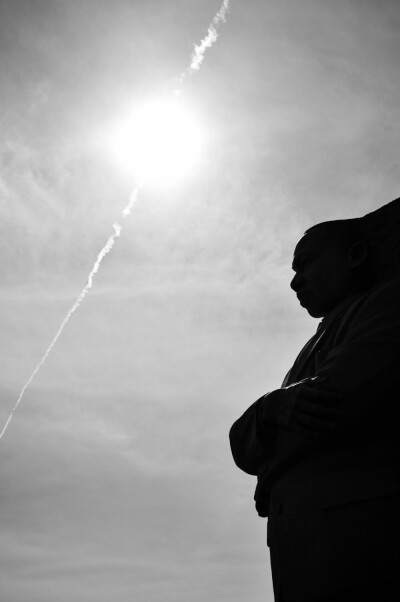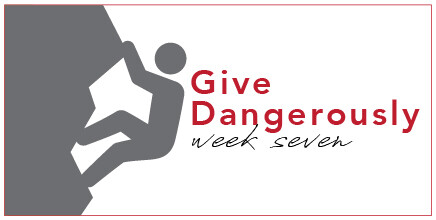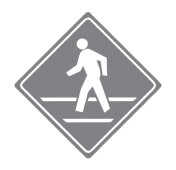Give Dangerously
Week Seven: March 25-31

- Text of “I’ve Been to the Mountaintop” speech, April 3, 1968
- Audio of “I’ve Been to the Mountaintop” speech
John 13:1-17
Now before the festival of the Passover, Jesus knew that his hour had come to depart from this world and go to the Father. Having loved his own who were in the world, he loved them to the end. The devil had already put it into the heart of Judas son of Simon Iscariot to betray him. And during supper Jesus, knowing that the Father had given all things into his
After he had washed their feet, had put on his robe, and had returned to the table, he said to them, “Do you know what I have done to you? You call me Teacher and Lord — and you are right, for that is what I am. So if I, your Lord and Teacher, have washed your feet, you also ought to wash one another’s feet. For I have set you an example, that you also should do as I have done to you. Very truly, I tell you, servants are not greater than their master, nor are messengers greater than the one who sent them. If you know these things, you are blessed if you do them.”
By the Rev. C. Anthony Hunt, Pastor of Epworth Chapel UMC in Baltimore.
This year marks the 89th anniversary of the birth of the Rev. Dr. Martin Luther King Jr., and the year when we observe the 50th anniversary of King’s assignation on April 4, 1968, in Memphis, Tenn. At his death, King was in Memphis to advocate for the rights of striking garbage workers. This is not coincidental in that one of the pillars of his insistent striving toward justice in America was for addressing economic inequality — along with what he deemed to be the concomitant evils of racism and militarism.
On the night before his assassination, King was invited to Mason Temple Church of God in Christ to offer encouragement to protesters in the garbage worker’s strike. In his remarks that night, in what has come to be known as the “I’ve Been to the Mountaintop” speech, he effectively reiterated his hope for an economically and socially just society.
Today, we might wonder what King would say to the church and society in light of where we find ourselves. To paint a picture of where society found itself in 1968, King shared the story of the Good Samaritan and offered a depiction of the Jericho road (Luke 10:25-37). He said that the “Jericho road is a dangerous road … It’s a winding, meandering road.” If King were alive today, he might offer insight on what it means to
If Dr. King were with us today, he might also reiterate something else he said at Mason Temple on April 3, 1968: that to give dangerously means remaining cognizant that there is a certain collective force among those of us who are committed to living the sentiments of the prophet Micah to “love kindness, do justice and walk humbly with God.” (Micah 6:8) King said, “For when people get caught up with that which is right, and they are willing to sacrifice for it, there is no stopping point short of victory.”
Finally, King might remind us that with whatever circumstances we face as the church and society, we must never give up
Toward the conclusion of his remarks at Mason Temple, King said, “Well, I don’t know what will happen now, we’ve got some difficult days ahead. But it really doesn’t matter with me now, because I’ve been to the mountaintop… And I’ve looked over, and I’ve seen the Promised Land… Mine eyes have seen the glory of the coming of the Lord.”
For King, a part of his dream (that I believe still holds today) was that there would be “hewn out of the mountain of despair, a stone of hope.”
We must never stop imagining and dreaming of the “future with hope” (Jeremiah 29:11) that is God’s will for the churches and society. Indeed, he might tell us that we should continue to heed the sentiments of the great poet Langston Hughes to –
Hold fast to dreams,
For when dreams die,
Life is a
That cannot fly.
Crosswalk
Breathe
Love in action… create
As you breathe in, say or think: “Love in action.” Experience God’s love in action in your breath and body. As you exhale, say or think: “create
Reflect
- Rev. C. Anthony Hunt has written books and taught several seminary courses that feature the ministry of King. As you read this devotion, which thoughts resonate most deeply with you? What questions
does Hunt’s writing evoke for you? - What insights into Jesus, and God’s intentions did you gain from this devotion?
- In addressing the 1,300 sanitation workers on strike, King said in his “I’ve Been to the Mountaintop” speech, that if they are to be allowed to live with dignity as God’s children, they must maintain unity, and not become distracted. “Keep the issue where they are. The issue,” he said, “is
injustice .” In today’s culture, what issues distract us from focusing on injustice? How much energy, effortand courage does your faith community put into addressing issues of injustice? How relevant is your church? - King asks the people of Memphis and beyond to “develop a kind of dangerous unselfishness.” Jesus praised the Good Samaritan, King said, because while on the Road to Jericho, the Samaritan “had the capacity to project the ‘I’ into the ‘thou’ and be concerned about his brother.” In what ways might you practice generous empathy this Lent? In what ways will you “give dangerously?”
Create
In closing this speech, King said, “I may not get there with you. But I want you to know tonight, that we, as a people, will get to the Promised Land. And so, I’m happy tonight; I’m not worried about anything; I’m not fearing any man. Mine eyes have seen the glory of the coming of the Lord.” The next day, on a hotel balcony, King was shot and killed. Imagine your tomorrows are not promised. Using the artistic medium of your choice, such as drawing, photography, collage, poetry, music, etc., craft a message that will serve as a legacy, expressing your hopes for God’s beloved community. Share your creation on Facebook.
Lead
Great leaders exude a non-anxious, hope-filled presence in the midst of mess, tension
Navigate
Celebrate confidently “that only when it is dark enough can you see the stars,” and that justice can rise from the dust.
Pray
Holy One: in the person of Jesus, you were born of a virgin and lived for us. Thank You. Great Healer: you were celebrated, criticized, called a demon, and ridiculed as you journeyed



